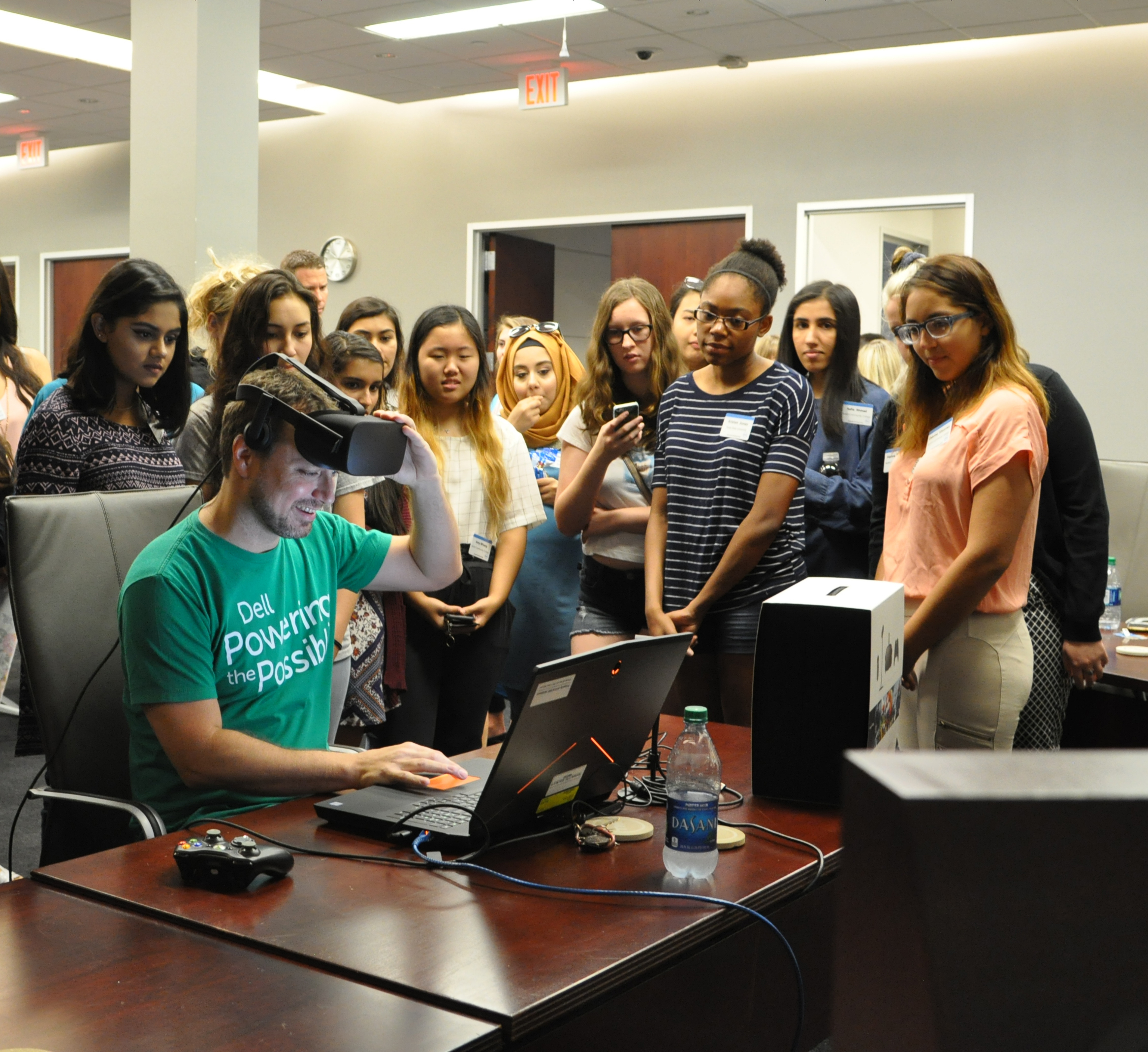Partnership Continues to Support Girls in Computer Science
Dell is extending its partnership with Girls Who Code (GWC), a national nonprofit organization that works to close the gender gap in technology, in an effort to improve and expand school programs that teach computer science.
The partners plan to reach 15,000 girls across the country with new investments offering financial, technical and mentorship support for GWC’s Clubs Program, or after-school programs for girls in grades 6–12. Programs will be concentrated in schools across the Great Plains and Rockies, the Southeast, the Northeast and San Francisco, according to a prepared statement.
The investments include:
- A $40,000 cash donation from Dell;
- A team of five women technology leaders who will serve as program ambassadors to organize and oversee mentorship services; and
- Materials and supplies for STEM curriculum.

A group of girls in the GWC Summer Immersion Program learn about virtual reality at Dell's campus.
Dell previously worked with GWC on a few other similar programs. In fact, this past summer, GWC brought more than 30 girls to Dell’s Round Rock campus to gain exposure to tech jobs through its Summer Immersion Program.
“It’s the incredible support by partners like Dell that have enabled Girls to Code to become the largest computer science program for girls in the United States,” said Reshma Saujani, founder and CEO of GWC, in a statement.
To learn more about the program, visit the Girls Who Code site.
About the Author
Sri Ravipati is Web producer for THE Journal and Campus Technology. She can be reached at [email protected].